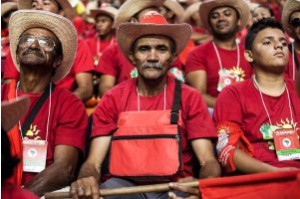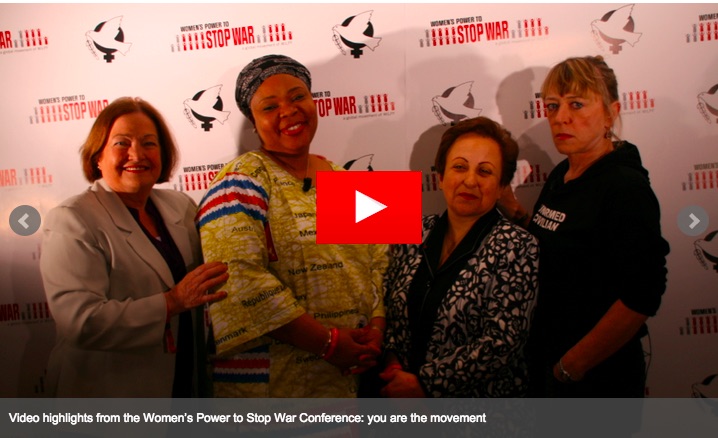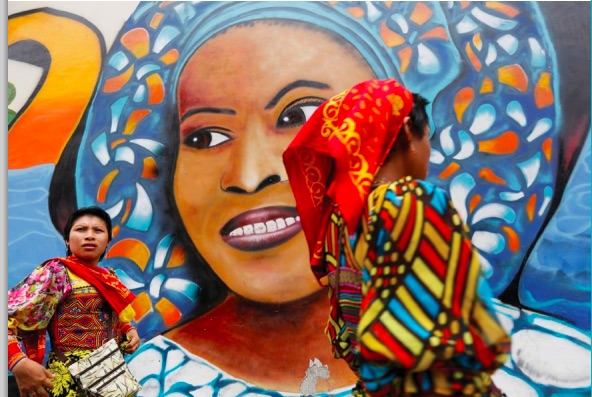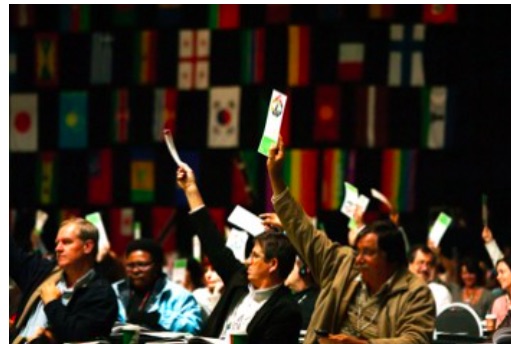. MOVEMENTS FOR FOOD SOVEREIGNTY .
This month we feature articles about the peasant movement for food sovereignty, beginning with the Sixth Congress of the Latin American Coordination of Rural Organizations-Via Campesina (CLOC-VC) that took place in Argentina. After a week of debates in workshops and assemblies, more than a thousand delegates from across Latin America and the Caribbean, together with delegates from Africa, Asia and Europe, agreed to defend “Food Sovereignty supported by the realization of a Comprehensive and Popular Agrarian Reform (which) gives us back the joy of taking care of Mother Earth and producing the food that our people and humanity needs to ensure its development.”
Here is a quotation from their final declaration:
“CLOC is the flame, the light and the actions of Via Campesina in Latin America. We emerged from the heart itself of the 500-year process of indigenous, peasant, black and popular resistance, which gathered the historical peasant movement and the new movements emerging as a response to the dismantling processes imposed by neoliberal policies. We gather strength, experience and struggles and we build proposals according to the new political moments, highlighting that the agrarian issues are relevant for the society as a whole, and as such, we need to face it with an alternative and popular power strategy.”
Despite the fact that small farmers (peasants) produce most of the food consumed by humanity, they are threatened by industrial farming and multinational companies that are trying to impose monoculture production for export and a monopoly on seeds, both of which are supported by government laws and subventions, increasingly on an international level.
A particularly eloquent advocate for the small farmer is Vandana Shiva from India, as we see from an interview with her in Switzerland: “The reasons farms are becoming fewer and larger is a highly twisted economy that punishes small farmers and rewards industrial agriculture. One reward is the $400 billion in global subsidies for large-scale farms. The other reward is that every step of law-making, such as regulations concerning standardisation of food, retail chains, and intellectual property laws, puts a huge burden on small farmers. For 10,000 years small farmers have done the job. Why only in this century has small farming become unviable? It is because the trade-driven, corporate-driven economic model for agriculture has been designed for large-scale farming. It has been designed to wipe out small farms. Around 70% of the food eaten globally today is produced by small farms. Small farms produce more and yet there is mythology that large scale farming is the answer to hunger”
Small farmers (peasants) are increasingly mobilizing around the world. In Guatemala, for example, there is a strong peasant movement to support a Rural Integral Development law which would oblige the state to assist people living in rural areas. The campesinos have continued to keep the pressure on the government to provide a solution by holding regular protests, blocking highways, and occupying space in Guatemala City, demanding that the government pass the law.
The so-called free-trade treaties, being negotiated at an international level by the most powerful countries, include institutionalized support for industrial agriculture at the expense of small farming, and for this reason these treaties are being opposed by peasant movements. They have designated April 17 as the International Day of Peasant Struggle against Transnational Companies and Free Trade Agreements. Among their actions are land occupations, seed exchanges, street demonstrations, food sovereignty fairs, cultural events, lobby tours and debates.
Seed exchanges are important because a few Transnational Companies such as Monsanto are trying to establish global monopolies on seeds. In Uruguay, the 7th National Meeting of Producers of Creole Seeds and the 6th National Festival of the Creole Seed and family farming, met under the slogan “Native seeds and the land as the heritage of peoples in the service of humanity.” Other examples of resistance by small farmers against seed monopolies are cited from Ghana, Mozambique, Niger, Brazil, Chile, Colombia, Costa Rica, Mexico, Venezuela, India, Philippines, South Korea, Thailand, Austria, France, Germany, Greece and Italy. In several of these countries, as well as Burkina Faso, Australia, Puerto Rico, Holland and Argentina there were demonstrations specifically against Monsanto on May 23.
Despite the fact that they are governed by the countries that support industrial agriculture, the relevant organizations of the United Nations, have recently met to sound the alarm against the destruction of small farms. According to the Food and Agriculture Organization, ““Despite significant rural to urban migration, extreme poverty is becoming more concentrated in rural areas, where there are lower levels of public and private investments, poorer infrastructure and fewer services targeted to the most vulnerable. Growth in agriculture is more effective in reducing poverty than growth in other sectors. We need more and better investment in agriculture.”
And according to the International Fund for Agricultural Development, “Most of the food that people are consuming around the world comes from smallholder farms. They are not the problem, but part of the solution. We see the need of smallholder farmers to have access to markets and to have access to credit.”
Despite the advantages enjoyed by industrial agriculture, many young people in Europe and North America as well as in the South are returning to small farming. To understand their motivation, we carry an interview in CPNN this month with one such young farmer from France.







